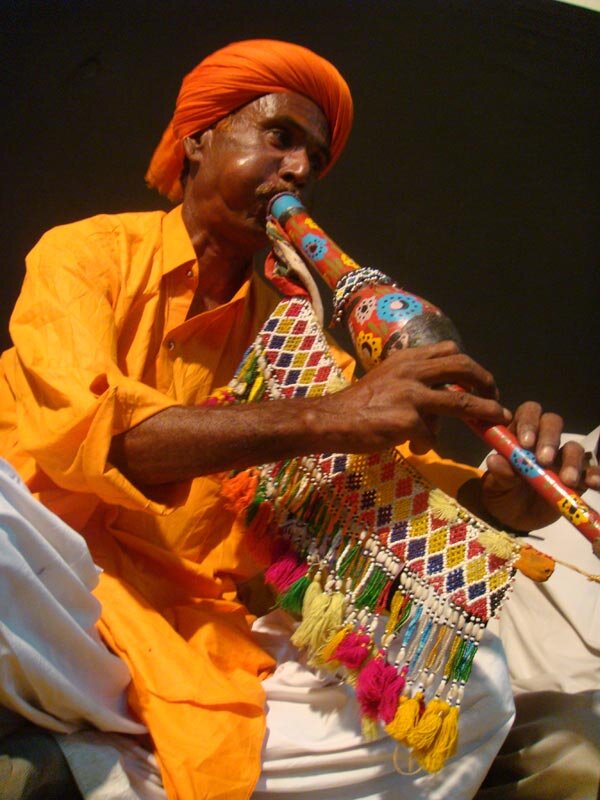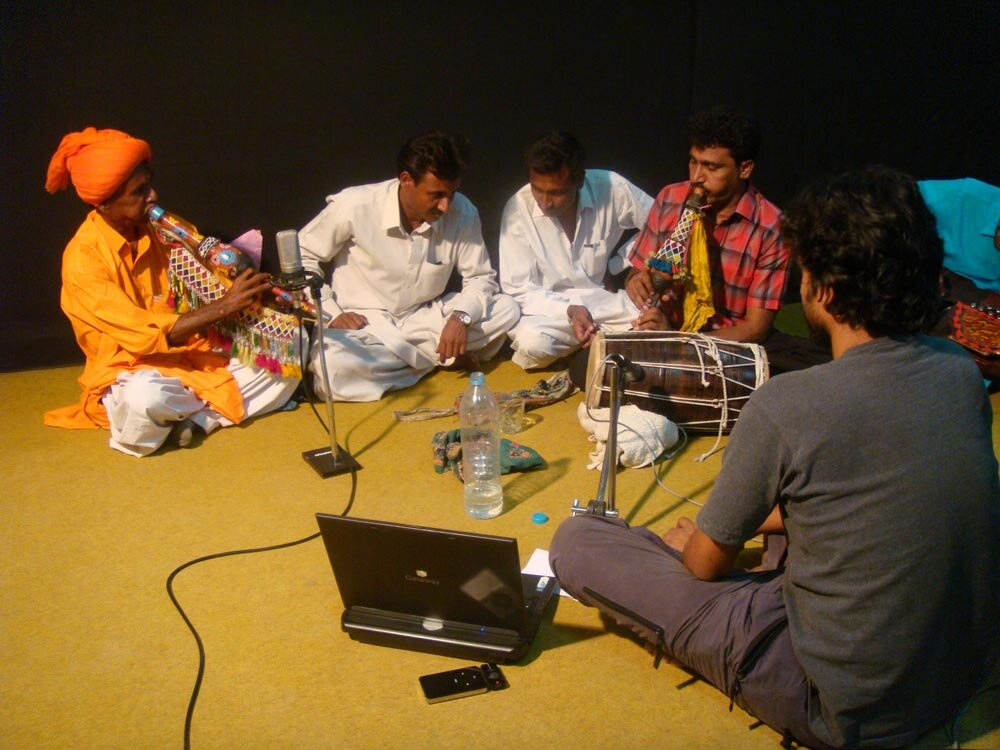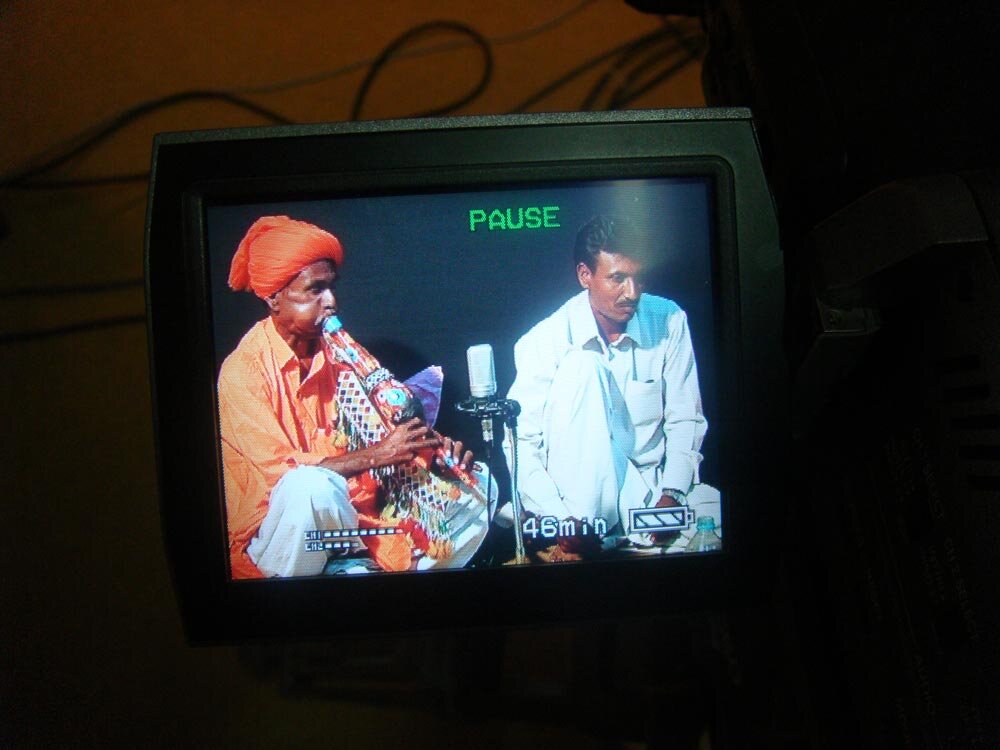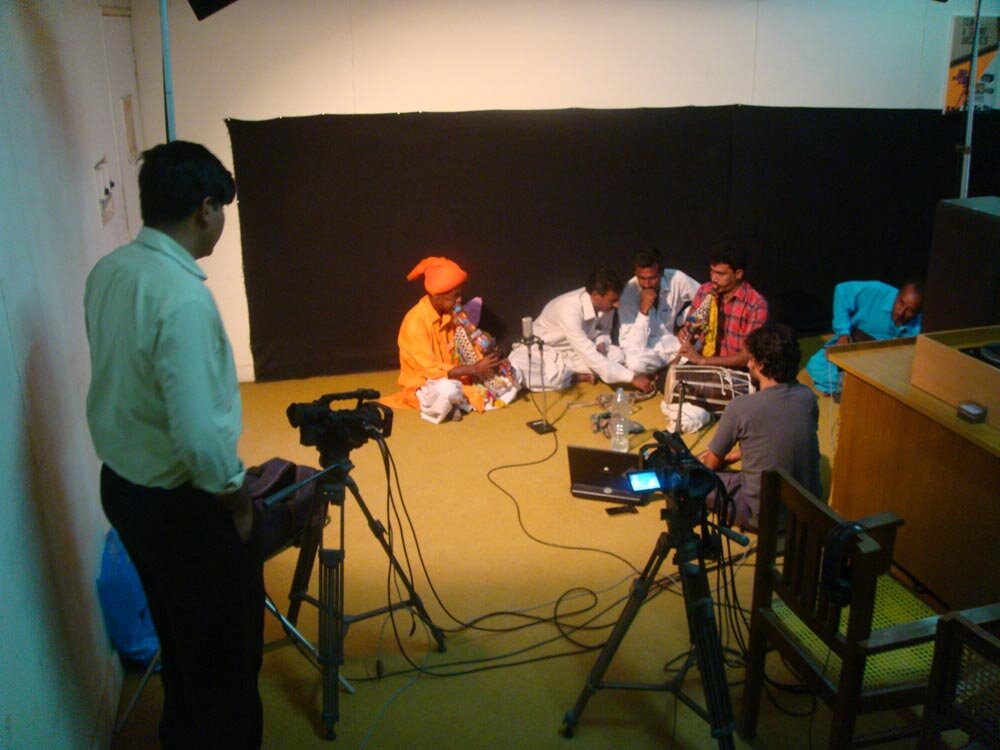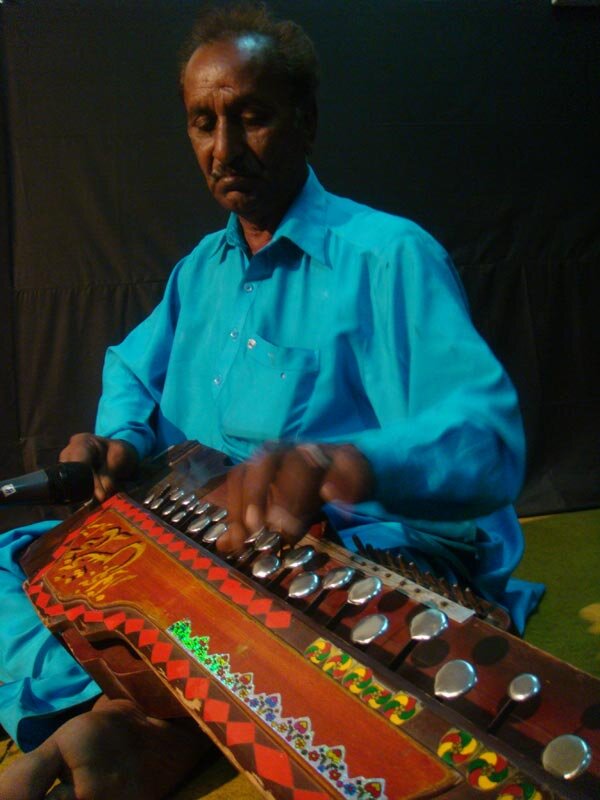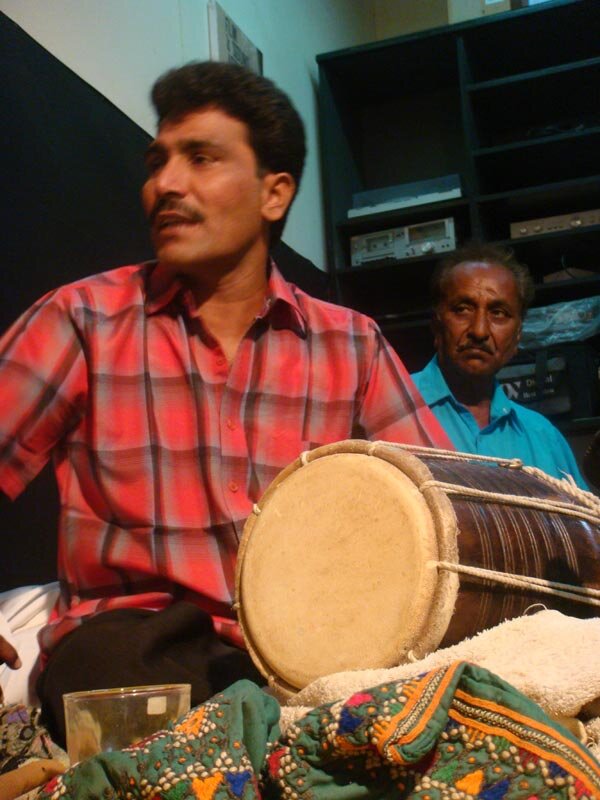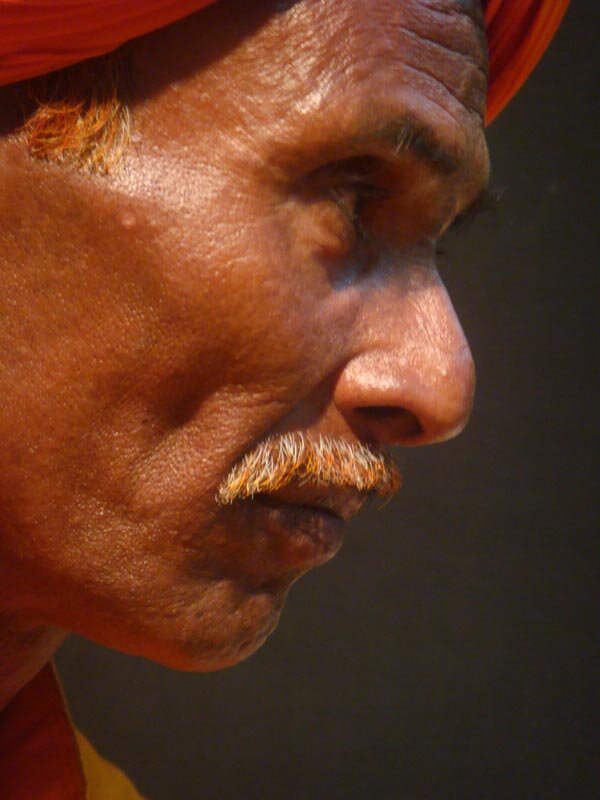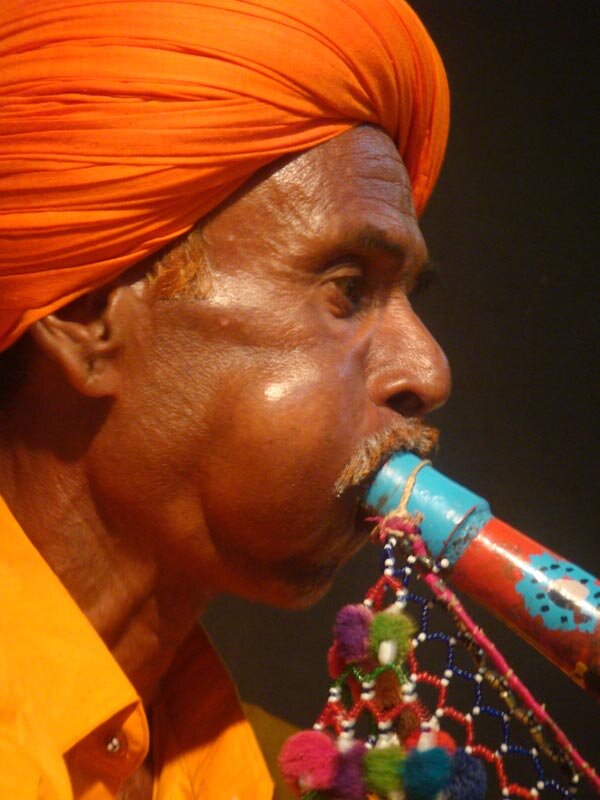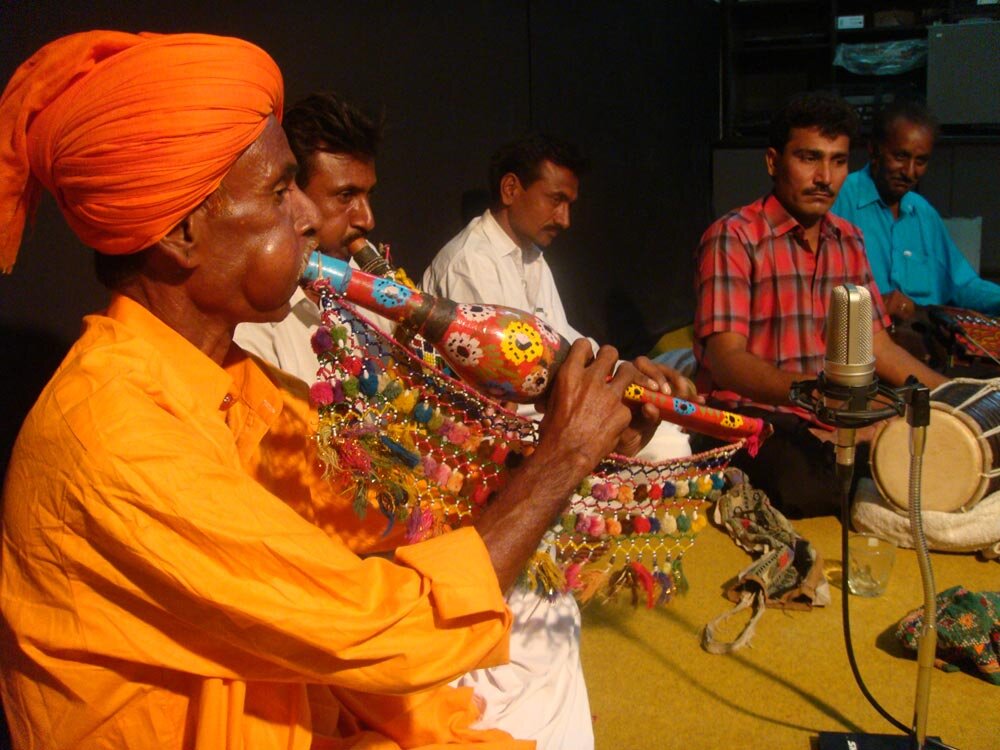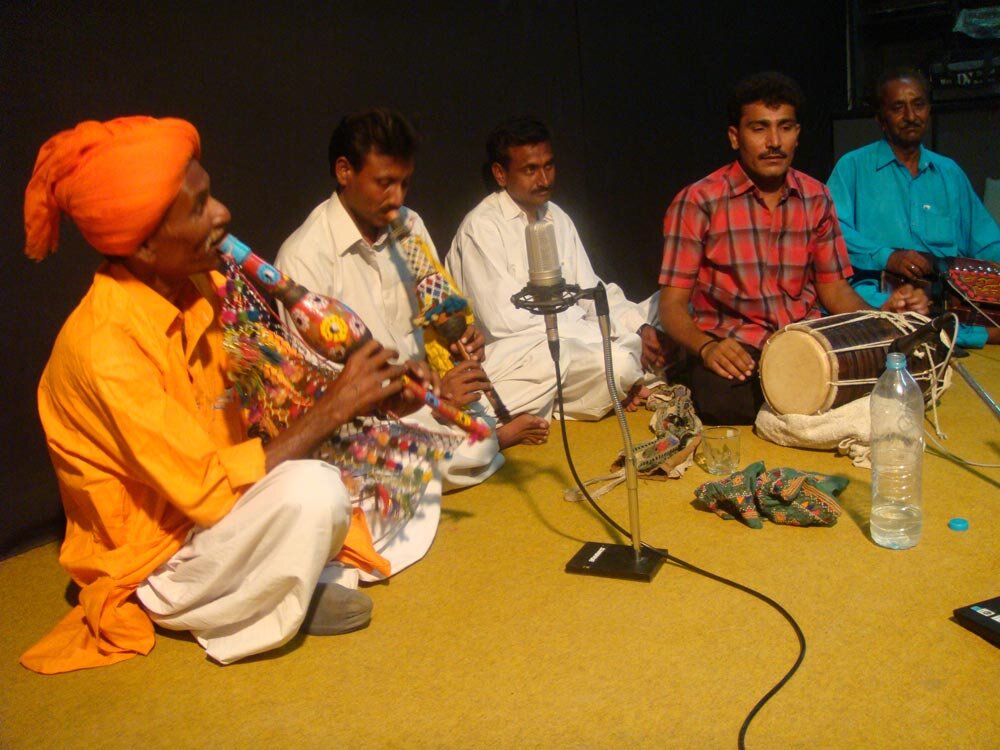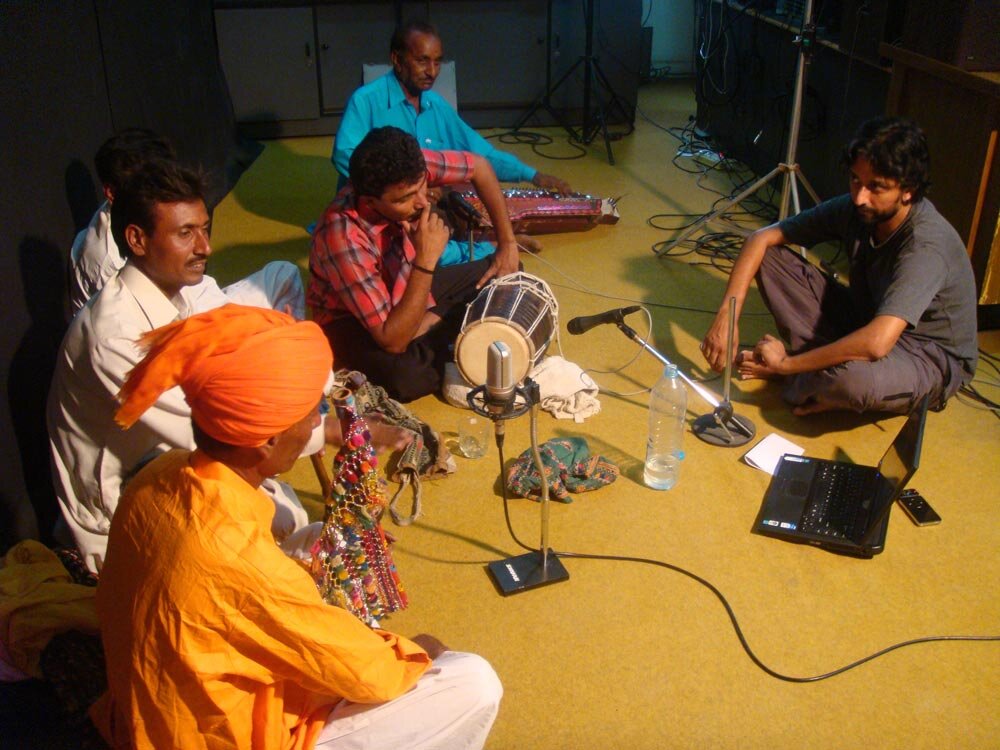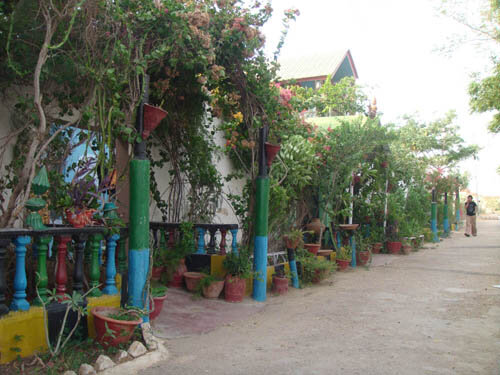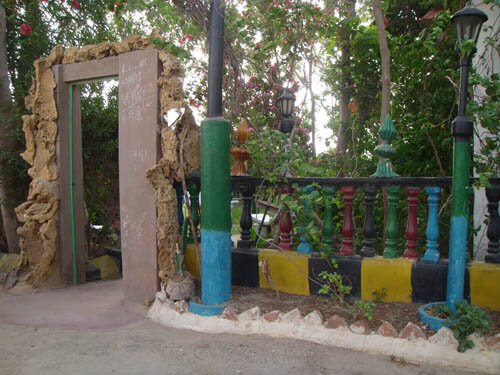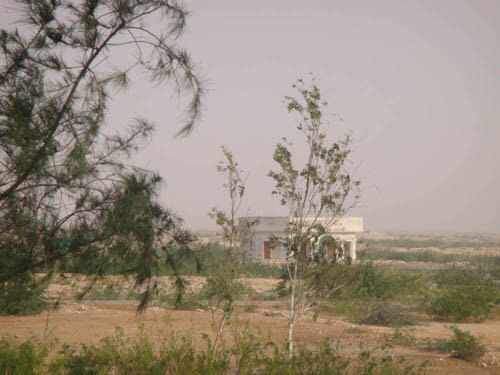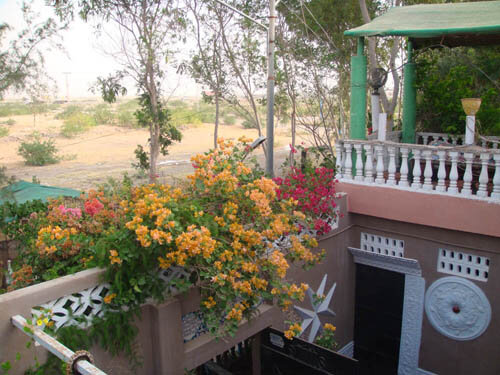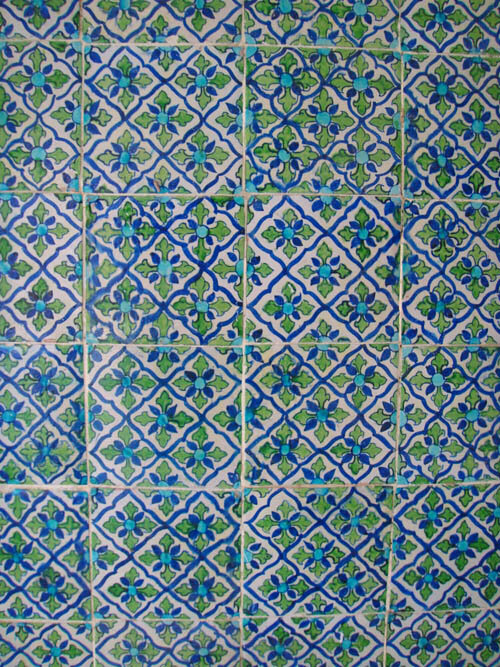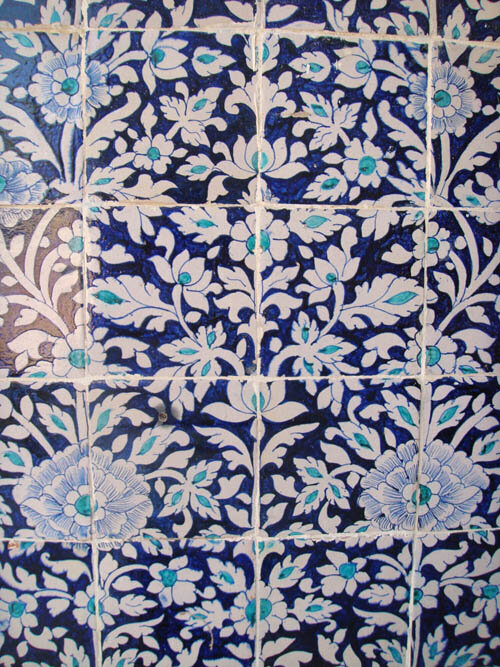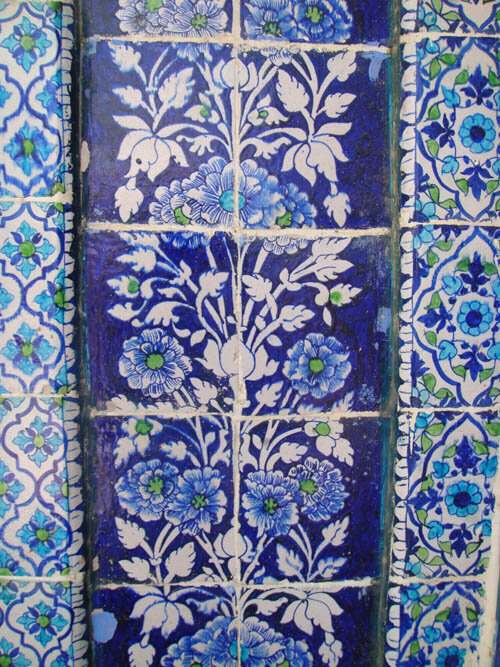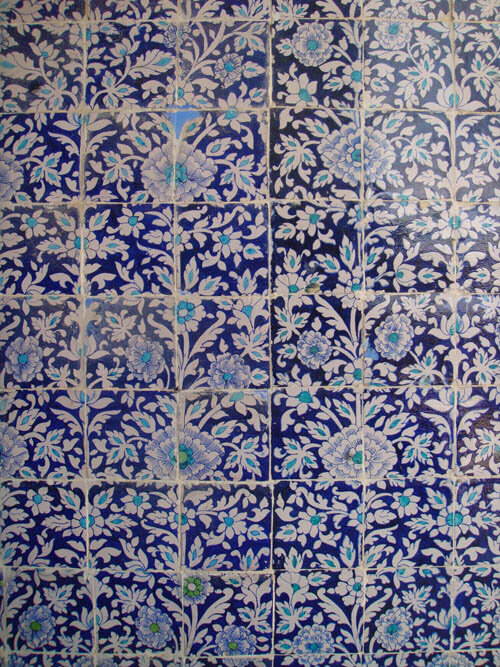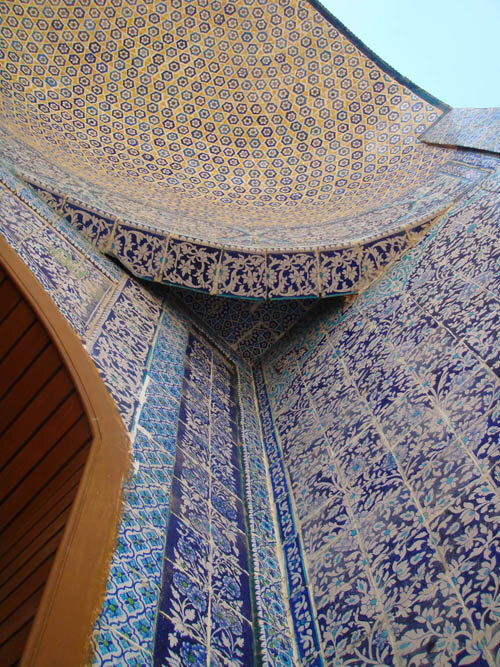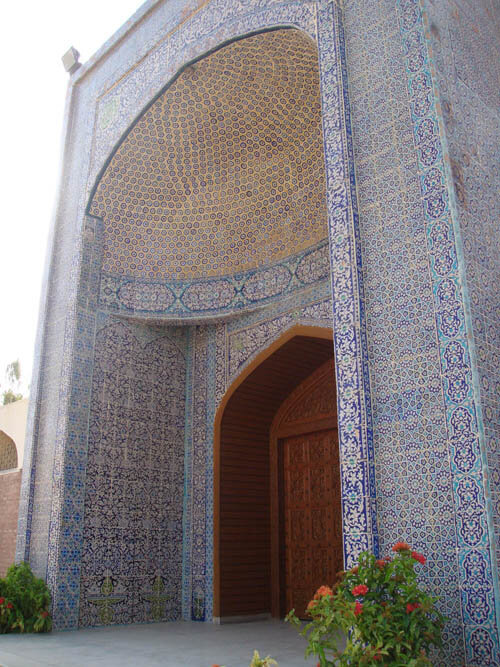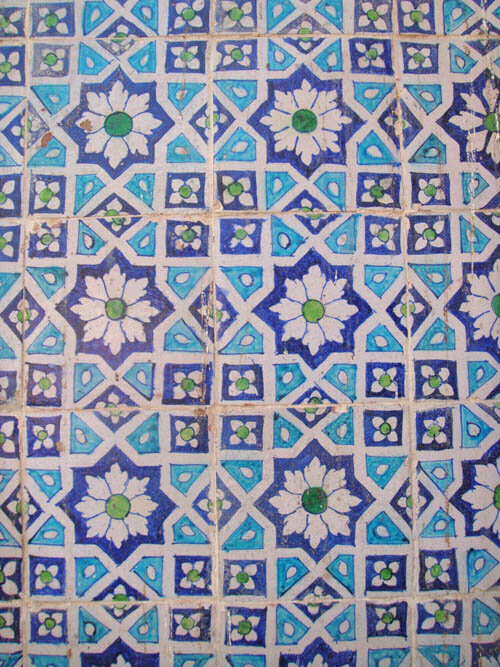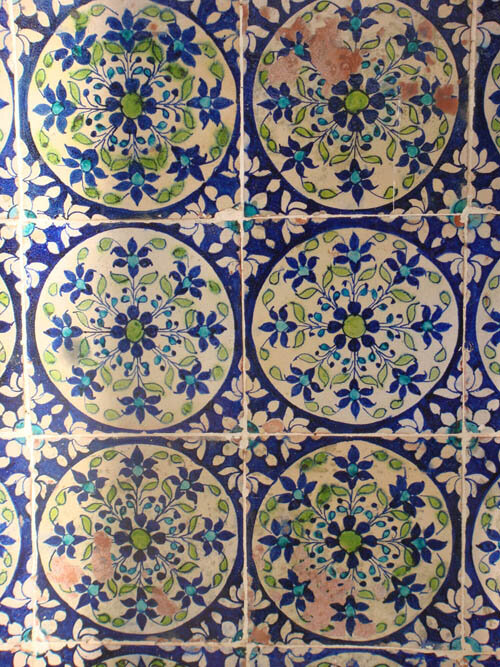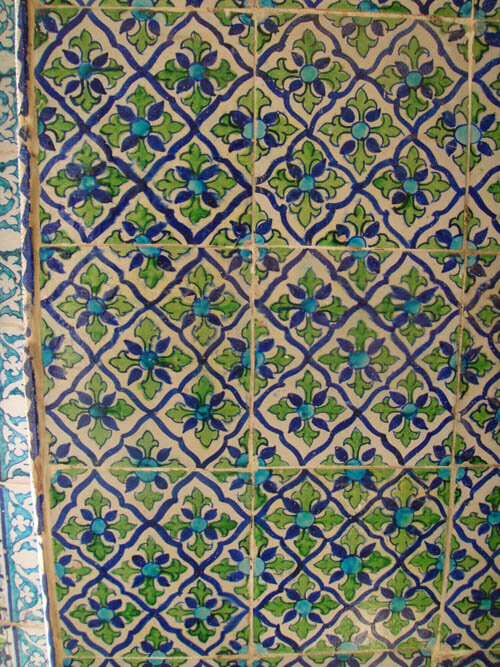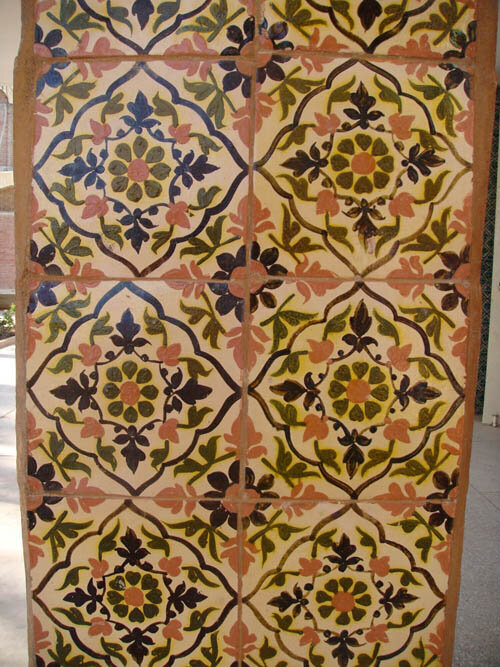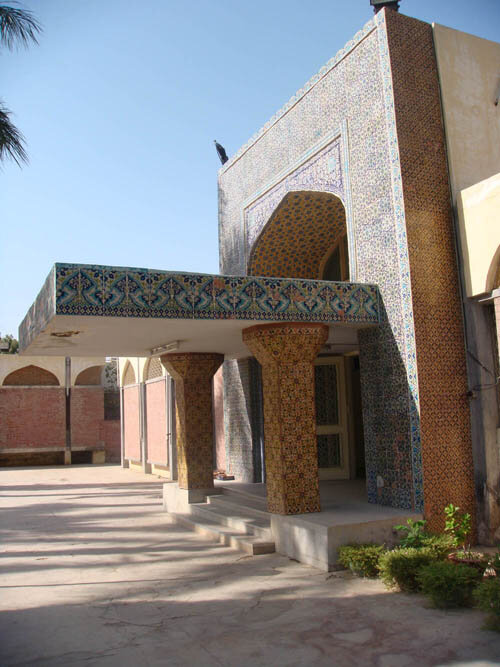1. Going to Sindh - 2. Emperors New Clothes and Sites - 3. Fun Days and Tipping Point - 4. Time Running Out - 5. All Good Now?
It’s all good now...right?
So, we had our musicians. Now I just needed to find a place to record and we would set a date that worked for everyone and do it. There were still many variables, but one important part had been handled. It takes a lot to slow down, let alone stop my friend Fatah sahib. At that time he fell ill with malaria. I didn’t really know what to say. I mean, here’s a man who really put himself out there for me, fallen terribly ill. He could not speak and all contact was cut off. I was staying with the students and then with Mangi sahib, who opened his home to me at this time. I was almost out of time, and I needed to get a place to record during this time. Unfortunately, Fatah sahib had not included me in on the the process, so I had no direct contacts to recording, much as I had argued to have these conversations in Urdu.
I took what bits I could and ran around making phone calls and tried to figure out who would let me record. I knew there was the radio station and a few tv stations that might be able to do it, but why would they do so for me? Every day, I would try and figure it out. Places were, booked and many people suggested going to Karachi, but I really could not do all of that. Meanwhile, we would all keep trying to find out how Fatah sahib was doing. Mangi sahib really helped me out, just by giving me a bit of peace and a break from all of this madness. We’d talk about art and animation, enjoying his wife’s delicious cooking and his little son’s cute conversations.Mangi sahib introduced me to Zulfi, the recording engineer at Sindhology and Maka sahib, who heads Sindhology. Again, Suffi sahib’s friends helped me out. Mangi sahib put in a request for me to record at Sindhology. It all seemed so out of reach, no matter how many people I met, and trekked out to meet. Maka sahib gave the go ahead and Zulfi graciously offered his time and skills.I called up the musicians with the good news, but it turned out our banjo player was already booked for that day as I needed to change the date to record at Sindhology. I had no time left. Ustad Anb Jogi sahib offered to find a suitable replacement, and with no other choice I had to place my trust in him. He knew what I was after and I hoped that he could find someone.The day of the recording session came. More friends who had been helping with driving around and following leads came to my aid again. Another talented painter and professer, Naimatullah sahib made sure the musicians could easily get from the Hyderabad Rail Station to Sindhology in Jamshoro. Mangi sahib and Zulfi sahib made sure that arrangements for recording were set.We met up in the recording room at Sindhology. The electricity kept going in and out. We had three hours to figure out the music and record it. Zulfi was miking up the intruments, and getting things ready on his end, as I sat down with the musicians and discussed how we could do this. I had a sheet with timings for key moments broken down. There were cues for where the music should change moods. We started by trying to follow that, but after a bit of it, I realized that I needed to free these musicians up to play. Not only was there not enough time to follow the breakdown sheet, but it wasn’t going to allow them to play their hearts out either.So I asked if we could try a different way. We took it scene by scene. I explained the emotions, then gave cues with gestures, and a few words. Ustad Anb Jogi chose the raags and would sing or even play a melody as instructions to the musicians. Each one added their own bits in, and music was made on the spot. We did several takes of each scene, and went through them all and came back to the start. I had to make sure that I got all the takes I would need to do the final mix, thousands of miles away in Los Angeles. If I didn’t get what I needed, that was it, it would be too late later. Zulfi had hooked up the mics directly to the DV cameras he was recording with. So I would get some kind of video of the whole thing and a 4 track recording of the musicians, with each of the main instruments seperated out. I wanted to take photos, but it was more important to concentrate on directing and giving the musicians what they needed. Thankfully Mangi sahib must have read my mind. He picked up my camera and took a set of really nice photos during the session.These musicians are masters of their art. Here I was, some silly, random guy explaining some strange project. I think what worked, was my genuine respect for the musicians. I deferred to their judgement after clearly explaining the parameters of what I wanted. I trusted in them, rather than trying to tell them what to do. I let them know how much I appreciated that they were there. I was stressed, but more so leading up to the recording session. During the session, just hearing the music and the support of new friends allowed me to concentrate on directing and letting the joy of that music wash over me. Knowing that Zulfi was there putting a lot of care into recording and Mangi sahib made himself available to help in any way, while Fatah sahib, ill at home had given his all do get me there and Suffi sahib had made these connections happen, I felt awash with gratitude at the miracle of that moment. These were all great men who had come together at my request and were now breathing a new dimension that really pulled together this personal film I had been chipping away at mentally and physically over the course of 8 years of building my skills, and refining how the story would translate into visual form.Along side that first drawing of Gul, and the first animated shot of Gul peeking and walking, the first successful shot lit and rendered with the painted technique, this moment was an incredible moment of satisfaction. In many ways, having done all that other work on the film, this was the moment that it connected to another group of artists through music. It is difficult to describe how challenging the process of getting there had been, and how joyful and worthwhile it ended up being. To truly know the story that you are trying to tell, makes it possible to tackle all the various pieces of it, and give the direction that your team needs to help you take it further. This story had lived in my mind and sketchbooks, through a rigorous refinement process. All of that gave me what I needed for my part to direct these incredible musicians to get the pieces of music that would tell this story.We all went for lunch after the session and I quickly wrote down notes on the musicians names and backgrounds. I paid them what they had asked and a bonus on top. I knew I could not truly thank them for the gift they had given me that day. They poured their love and care into something that had been selfishly mine for many years, growing and developing, inching toward birth.Ustad Anb Jogi Composer/DholakJairam Jogi on MurliUstad Mohammad Buksh on BanjoNasir Jogi on 2nd MurliIbrahim Jogi on TaliZulfi Gopang Recording Engineer on Music1. Going to Sindh - 2. Emperors New Clothes and Sites - 3. Fun Days and Tipping Point - 4. Time Running Out - 5. All Good Now?
